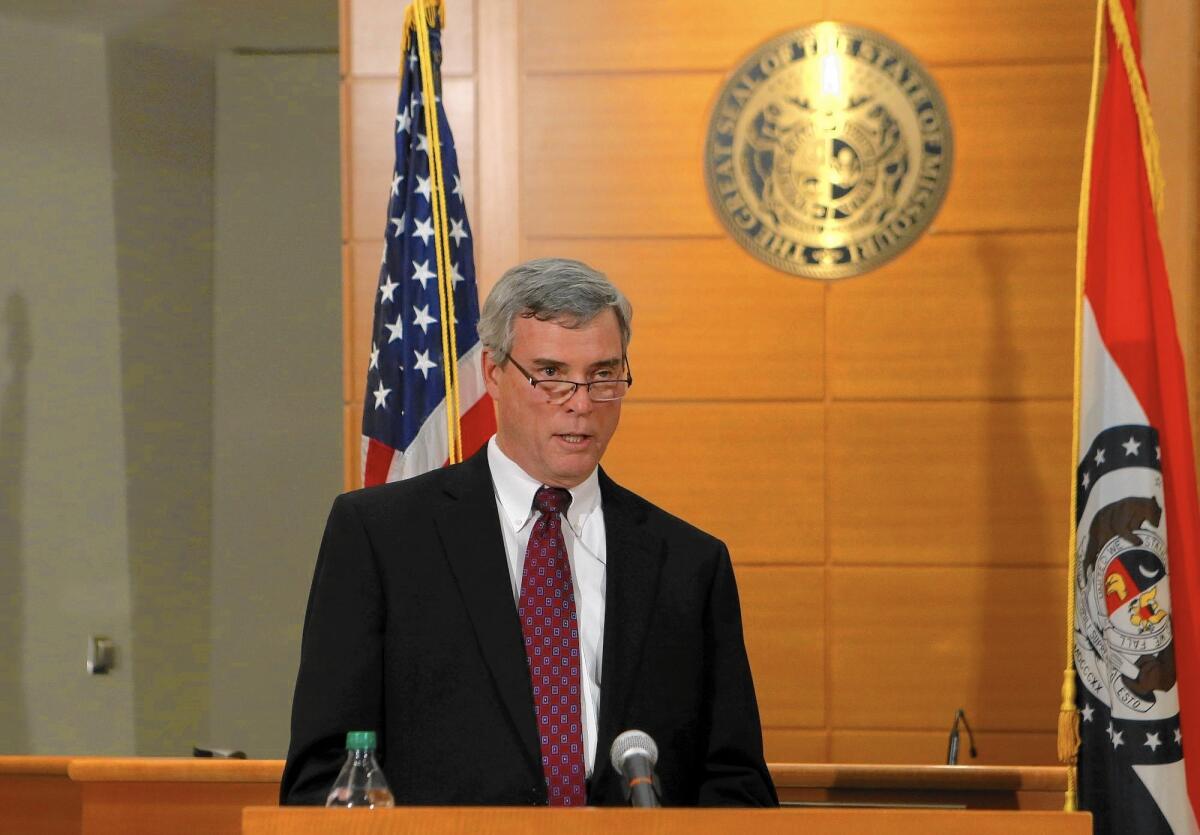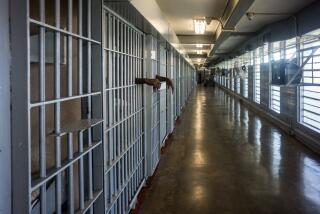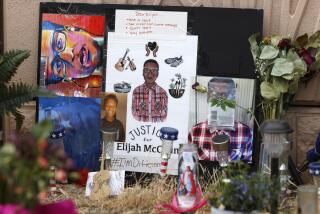Prosecutor’s grand jury strategy in Ferguson case adds to controversy

In most cases, a grand jury is a supple tool in the hands of a prosecutor bent on an indictment. But the police shooting of Michael Brown in Ferguson, Mo., is no ordinary case, and some legal experts say it resulted in an extraordinary grand jury proceeding.
Over the course of three months, St. Louis County Prosecuting Atty. Robert McCulloch asked the jury of nine whites and three blacks to hear virtually every piece of evidence in the case: witnesses who both supported and contradicted police Officer Darren Wilson’s account, three autopsy reports, bloodstains and shell casings.
“Our only goal was that our investigation would be thorough and complete, to give the grand jury, the Department of Justice and ultimately the public all available evidence,” McCulloch said in announcing that the jury had found no probable cause to bring Wilson to trial on criminal charges.
The tactic was a shrewd maneuver, legal experts say, in which McCulloch both deflected responsibility for his own failure to charge Wilson and — deliberately or not — created conditions in which the grand jury would not be likely to charge him either.
“This was a strategic and problematic use of a grand jury to get the result he wanted,” said Ronald S. Sullivan Jr., director of the Harvard Criminal Justice Institute at Harvard University. “As a strategic move, it was smart; he got what he wanted without being seen as directly responsible for the result.”
Sullivan called the case “the most unusual marshaling of a grand jury’s resources I’ve seen in my 25 years as a lawyer and scholar.”
The grand jury ordinarily is a forum in which prosecutors present their best evidence for a criminal prosecution, testing whether 12 jurors consider it sufficient to proceed to trial. Typically, prosecutors present evidence of a crime and advise a specific charge, according to legal scholars. There are no rules of evidence and no cross-examination by defense lawyers.
The standard for determining probable cause to charge someone with a crime is so low that former New York State Chief Judge Sol Wachtler once famously observed that a grand jury would “indict a ham sandwich.”
It is not until the public trial later that evidence challenging the prosecution’s theory and witnesses who tell a different version of events are given a full airing.
In the Ferguson case, several analysts said, the decision to present all available evidence essentially meant that jurors heard from witnesses both favorable and hostile to a prosecution. It provided an unusual opportunity for jurors to have doubts about whether there was probable cause for an indictment.
Jeffrey Toobin, a legal analyst writing in the New Yorker, accused McCulloch of using the Wilson case for “a document dump, an approach that is virtually without precedent in the law of Missouri or anywhere else.”
McCulloch said he laid out five possible charges, ranging from involuntary manslaughter to murder, and asked the grand jury to decide whether any of them applied.
Most tellingly, legal experts said, McCulloch did not challenge Wilson’s detailed account of his encounter with Brown. That, they said, prompted jurors to accept at face value Wilson’s testimony that he feared for his life as Brown allegedly charged at him after he punched the officer and tried to grab his gun.
“A first-year law student would have done a better job of cross-examining” Wilson, said Benjamin Crump, a lawyer for Brown’s family. “When was his credibility ever challenged?”
McCulloch “allowed Darren Wilson to sit there and give his side of the story,” said Missouri state Sen. Jamilah Nasheed. “But there was no one there to give Michael Brown’s side of the story.”
James A. Cohen, a law professor at Fordham University, said the presentation of evidence was normally structured by prosecutors to help grand jurors understand it.
“A prosecutor has an obligation to ask questions and clarify testimony for grand jurors,” he said. “This prosecutor did worse than abdicate his responsibility: He structured the presentation so the jurors would vote no true bill.”
McCulloch’s defenders say he was in an impossible position because police-involved shootings are handled much differently than other cases. And Brown’s death exploded into an international story that triggered violent demonstrations and emotional public debate.
William Fitzpatrick, president-elect of the National District Attorneys Assn., and the district attorney in Syracuse, N.Y., said it was not unusual in a police-involved shooting case for a prosecutor to lay out all the evidence and not ask a grand jury for a specific criminal charge.
------------
FOR THE RECORD
Nov. 26, 1:20 p.m.: An earlier version of this article stated that William Fitzpatrick, president-elect of the National District Attorneys Assn., described a prosecutor’s action as not usual. He described the action as not unusual.
------------
“I think — and most of our members think — that Bob did it the right way in this case because he didn’t want to be criticized later by people saying, ‘Well, you didn’t put in this or that piece of crucial evidence,’” Fitzpatrick said.
“Bob went in from Day One knowing no matter what he did, there was going to be adverse reaction on both sides. He decided that, before you criticize me, look at the evidence. Here — here it is.”
McCulloch told reporters Monday night that grand jurors relied on forensic evidence more than on witness statements in deciding not to bring charges against Wilson. But critics said he did not apply forensic rigor to Wilson’s testimony that he was badly beaten by Brown and feared that another punch might kill him.
“There is an enormous disconnect between how the officer describes the events in his car versus the ‘injuries’ he suffered,” said Cohen, the Fordham professor.
Nor did prosecutors press Wilson on why he got out of his car and pursued Brown if he was afraid that Brown might kill him.
“He was frightened for his life — that’s what he said,” Cohen said of Wilson. “So why did he get out of the car? Why did he chase Brown? Why didn’t he wait for [police] backup, which he knew was on the way?”
Twitter: @DavidZucchino
More to Read
Start your day right
Sign up for Essential California for news, features and recommendations from the L.A. Times and beyond in your inbox six days a week.
You may occasionally receive promotional content from the Los Angeles Times.







